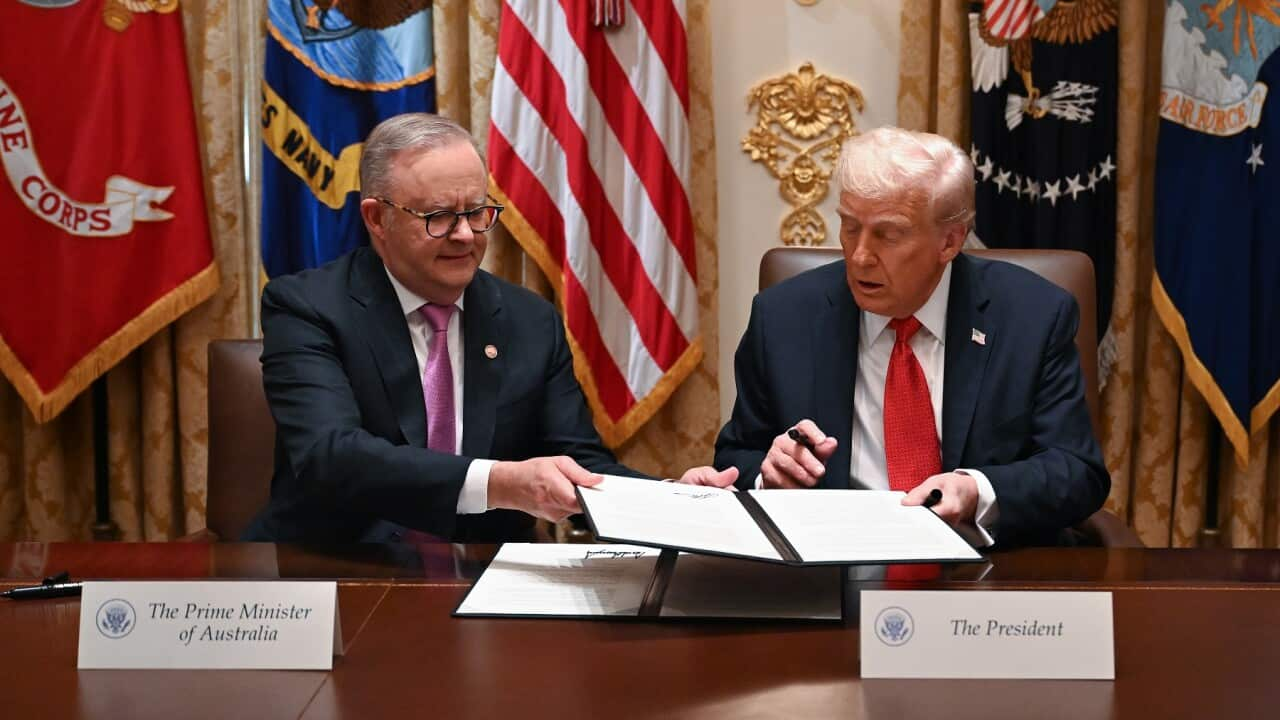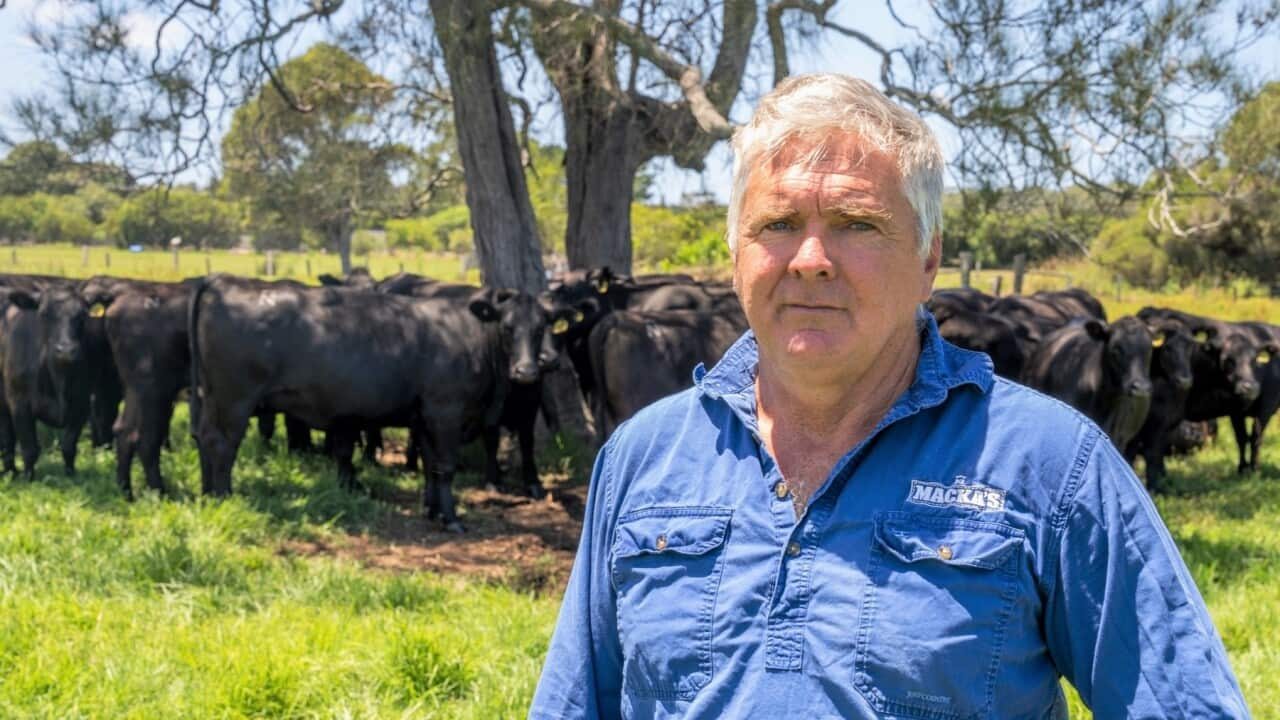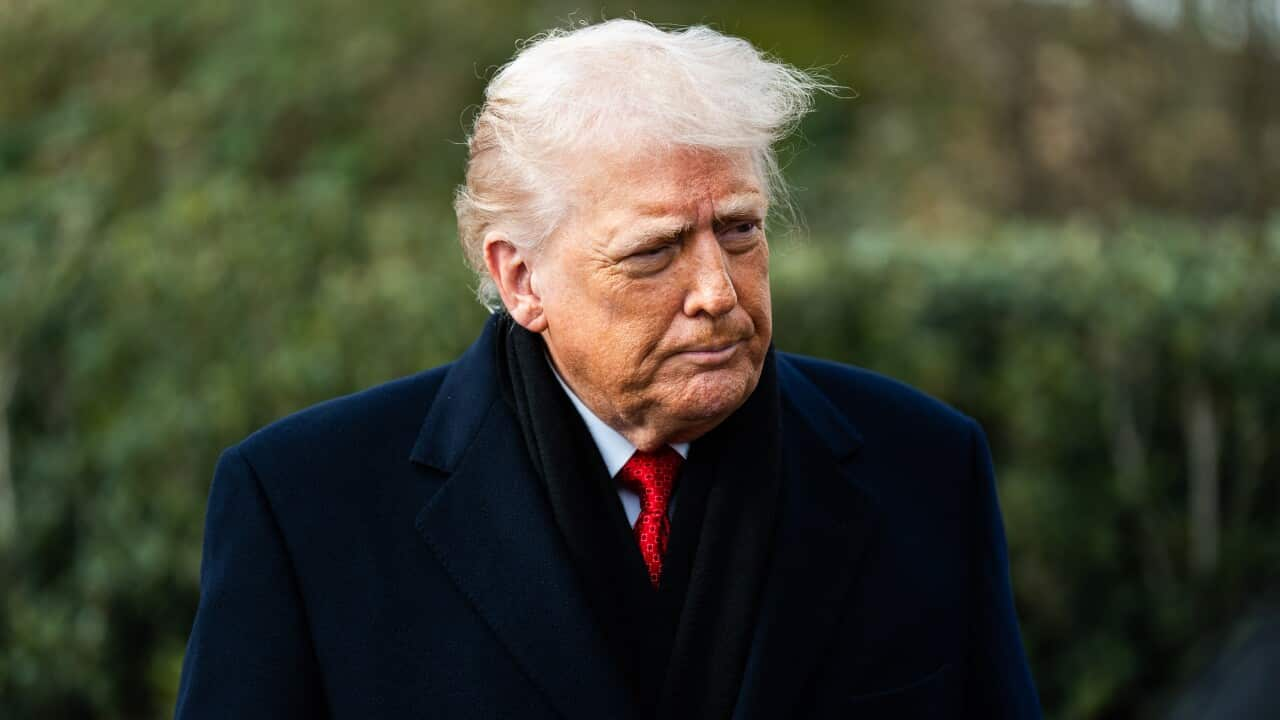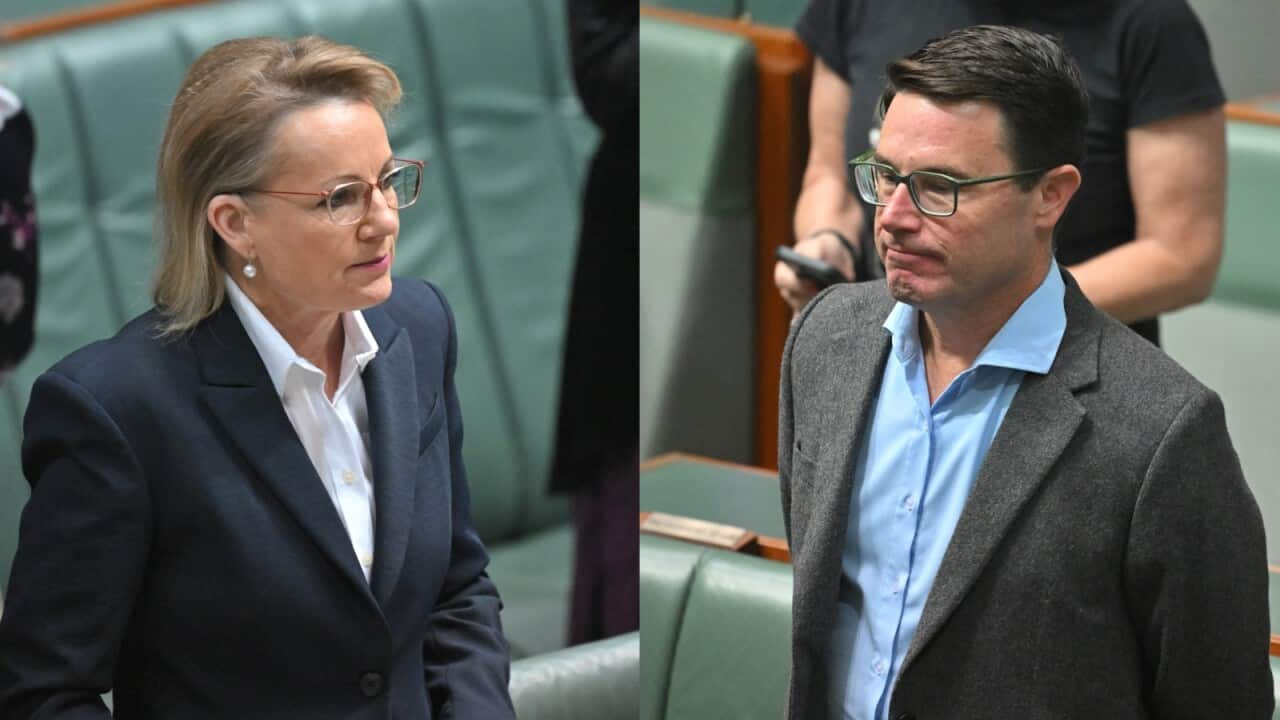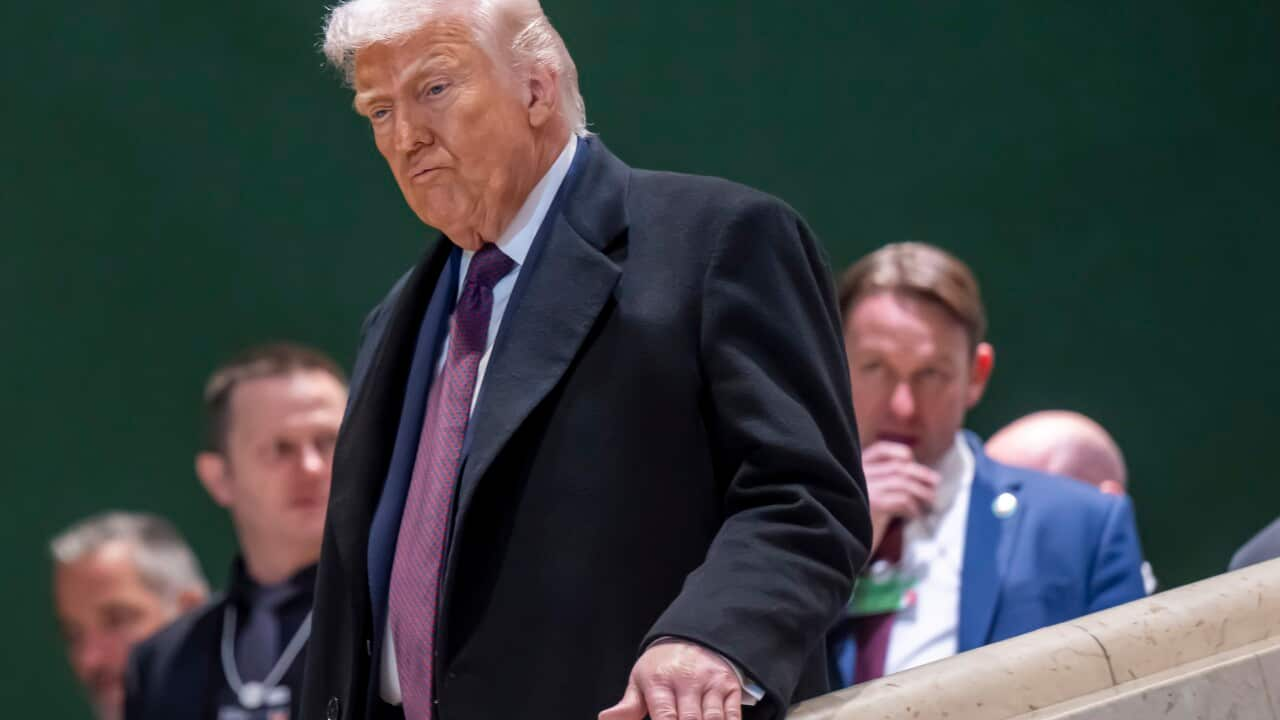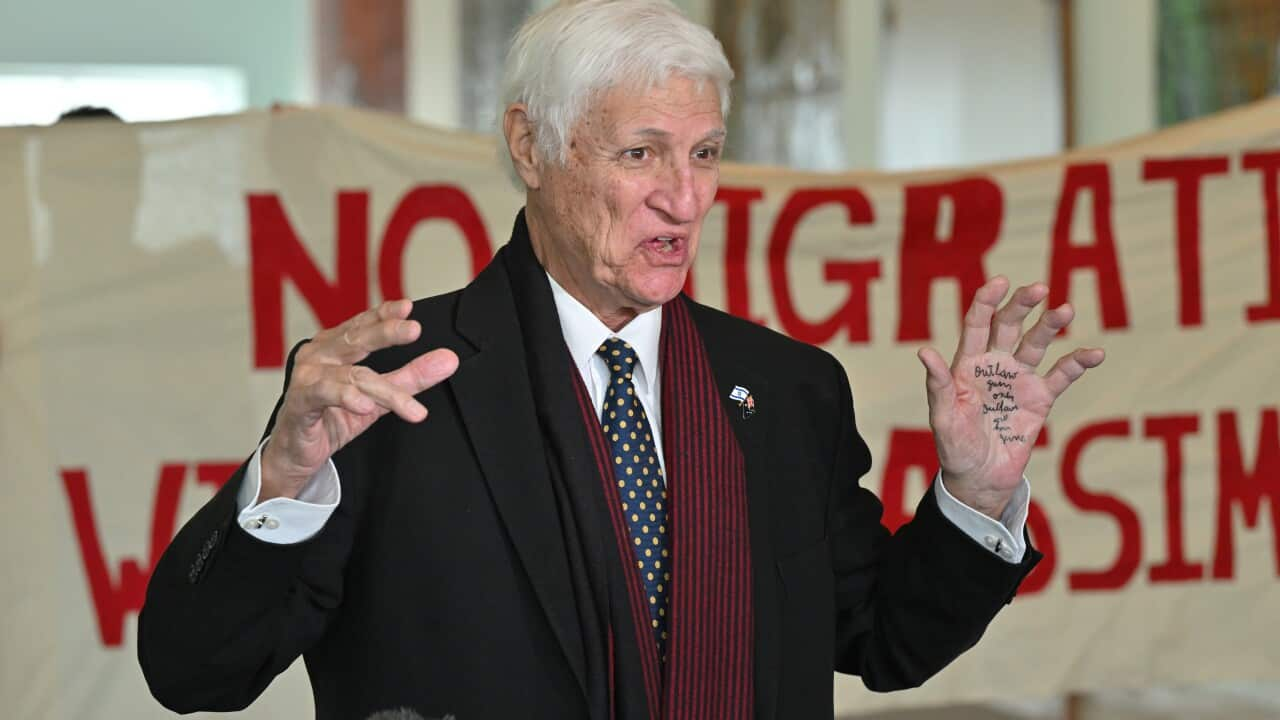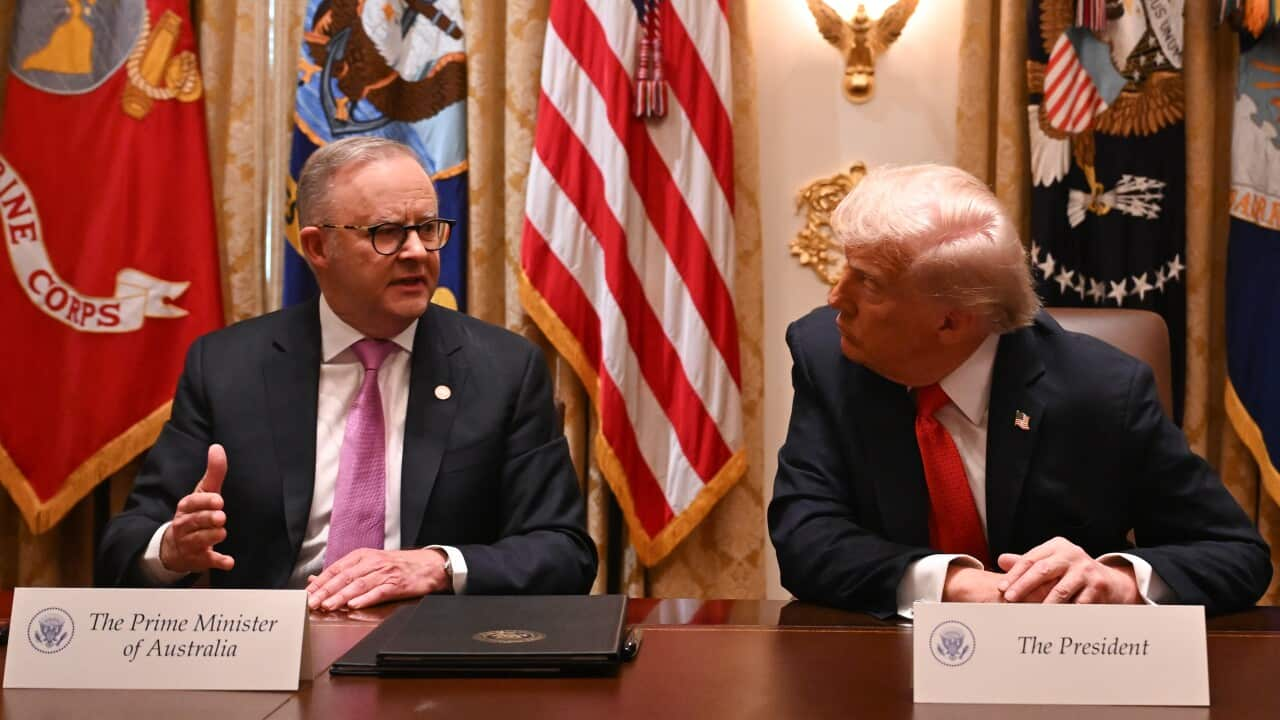Listen to Australian and world news, and follow trending topics with SBS News Podcasts.
TRANSCRIPT
Dr Jasmina Kevric is scrubbing in for surgery.
The 39-year-old breast cancer specialist operates at Melbourne’s Cabrini hospital and also volunteers her services, helping refugees like herself.
"I wanted to give back to this country for giving us this second chance. I wanted to provide the care for the patients to have the best healthcare system that we could possibly offer."
It’s a sentiment born of the suffering she experienced 33 years ago.
Dr Kevric grew up in Brcko, in Bosnia and Herzegovina, and was a young child in 1992 when conflict erupted.
"No one anticipated a civil war in the middle of Europe. We heard a loud missile hitting the bridge. And that was the moment when the war started for us."
For the Kevric family, it was time to flee.
"We were lucky to escape at that time into a nearby town called Bihać, which is where my grandparents lived. And so we sought shelter."
But conflict was never far away. One day it arrived at their peaceful family farm in the form of a missile.
"All we heard was a big bang and the sound of the splinters that came towards us. I saw lots of blood. I saw my family on the floor. My grandma, I saw her lying on the floor in a pool of blood. My grandfather was on top of my brother protecting him. There was blood on both of them.
"My dad had blood running down his face. It was a very surreal moment. It was something that stays with you for the rest of your life. I was standing on the stairs looking down at the medics doing CPR and stopping the blood and providing pressure on the bleeding parts of my family."
The Kevric family survived but the impact of that terrifying scene changed the course of Dr Kevric’s life forever.
"I remember looking at those medics and thinking ‘one day I want to be like that. I want to be able to provide this help to those most vulnerable."
Four years after seeking refuge in Germany, Dr Kevric arrived in Melbourne as a teenager.
She started school and the long journey began, towards her dream of becoming a doctor.
"I didn't speak any English, so that was the biggest hurdle is learning how to speak the language. But, I embraced this new culture. And because I missed out on education for the last 14 or so years, I was absolutely hungry to learn."
Dr Kevric mastered English and earned a scholarship to study medicine at Melbourne university, later specialising as a breast cancer surgeon.
But for many of the 20,000 humanitarian arrivals accepted in Australia each year, barriers to skilled employment persist.
John van Kooy is lead author of a report released this week by the Australian Institute of Family Studies.
"It's significant because it's the largest longitudinal study of humanitarian migrants in Australia, one of the largest in the world. We surveyed around 2,400 humanitarian migrants or refugees over a 10-year period.
And what we found, we are calling it ‘occupational downgrading’, which basically means that for those that were working in professional and managerial roles prior to coming to Australia, even after 10 years of permanent residency in Australia, weren't able to find the same level of employment and the same occupational status."
For women, the 'occupational downgrade' was worst.
"In families where there were children under five years old in the household, they were 84 per cent less likely to be in employment compared to men over that 10-year period. So significant differences in terms of gender."
John van Kooy said many women and men unable to get their skills recognised here, turn to entrepreneurship.
"Over one fifth of the sample in this study after over that 10-year period had ended up in self-employment or had started their own business, which is higher than the rate of self-employment for the Australian-born population. But it does show that the refugee cohort are resilient and they will do what they need to do to earn income and support their families."
After achieving her childhood goal to become a surgeon, Dr Kevric now supports other refugees at the Cabrini Asylum Seeker and Refugee Health Hub in Melbourne’s Northcote.
"I feel incredibly proud and privileged to be able to reach this point in my life where I can provide the support that I feel that refugee patients need. And I know that because of my own personal experience. Often certain healthcare providers didn't understand what it was like to come to new country, not speak the language, not have the same culture."
Dr Kevric’s medical services are valued by the hub's clinical director, professor Suresh Sundram.
"Any specialist, who've got an experience of a refugee background more sensitively manage and deal with the sorts of complexities that asylum seekers and refugees present. They may not access or recognise health issues that are important. This is particularly sensitive for mental health problems where mental health literacy may be very limited. We also have to deal with the problems of language where people may not be fluent in English.
"And of course, their backgrounds: their torture and trauma background, their pre-migration experiences of conflict, which forced them to flee in the first instance, their migration journeys, which may be very harrowing in particular, if they've needed to take a boat from Indonesia, for example.
"And then their post-migration experience. So, for example, experiences of immigration detention, which have a powerfully corrosive effect on people's mental health and physical health as well. So all of these factors combine to create a unique set of health challenges that asylum seekers and refugees present and may not be well understood by mainstream health services."
Professor Sundram started the hub in 2016 and is proud it provides support for hundreds of people - all part of the Cabrini global health network, founded in America in 1880 by an Italian migrant.
"St Francis Cabrini, who established the Cabrini Order in New York, really to cater to the needs of the immigrants that were coming into America. We formed a partnership to establish the hub here, which has been a major success in terms of being able to provide accessible free healthcare for asylum seekers and refugees who are unable to afford mainstream healthcare services or unable to access them."
Dr Kevric is married with a young daughter. She is proud to support refugees and urges others to do the same.
"I am hoping that the people of Australia see refugees who come to this country as someone who lost a lot in their life. I also want to remind everyone of the potential that the refugees bring to this country and that they are potentially the future doctors, the future lawyers. Together we can make this country even a better place if we embrace all those that we have in this wonderful land."

